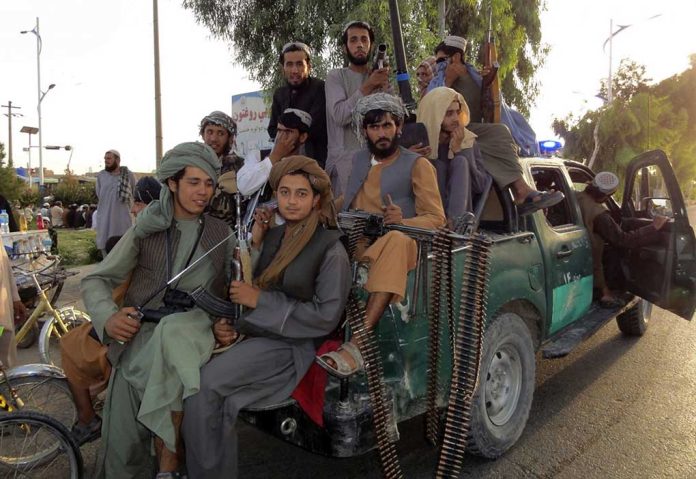
Al-Qaeda and ISIS-K operatives are reportedly disguising themselves as Taliban officials in Afghanistan, raising worldwide security concerns and prompting a UN Security Council investigation.
At a Glance
- The Taliban’s 2020 agreement with the U.S. pledged no use of Afghan soil to threaten U.S. security.
- Al-Qaeda and ISIS-K are the primary terrorist threats in the country.
- These groups are reportedly masquerading as Taliban members.
- The UN Security Council is investigating the situation’s implications for global security.
Al-Qaeda and ISIS-K: Growing Threat
Emerging reports indicate that Al-Qaeda and ISIS-K operatives in Afghanistan are posing as Taliban officials, leading to growing concerns about the stability and security of the region. This development challenges the Taliban’s control and could signify their inability to prevent terrorism on Afghan soil.
Per Frontline, “A year and a half before their takeover of Afghanistan in August, the Taliban signed a deal with the U.S. stipulating that they would not allow any individuals or groups to use Afghan soil ‘to threaten the security of the United States and its allies.'”
UN Security Council Steps In
The United Nations Security Council (UNSC) is actively investigating the implications of this development. The presence of Al-Qaeda and ISIS-K operatives disguised as Taliban officials raises significant concerns for international peace and stability. The Taliban’s 2020 promise to the U.S., where they agreed to prevent terrorist activities from Afghan soil, is now cast into serious doubt as various extremist groups are evidently operating freely.
The current situation poses a potent threat as experts believe that Afghanistan could once again become a breeding ground for terrorism, potentially launching attacks on Western nations within six months to two years.
US officials met with Taliban officials in Doha this week. The US officials “expressed concern regarding the continuing presence of Al Qaeda, ISIS-K & other terrorist organizations in Afghanistan,” State says. pic.twitter.com/04pwDMjFnx
— Kylie Atwood (@kylieatwood) July 1, 2022
Between the Taliban, Al-Qaeda, and ISIS-K
Al-Qaeda and ISIS-K remain the dominant terrorist threats within Afghanistan. While Al-Qaeda has fought alongside the Taliban, and some Taliban members have close ties with Al-Qaeda operatives, ISIS-K views the Taliban as rivals. This internal strife between militant groups further complicates the Taliban’s ability to govern effectively and secure legitimacy on the global stage.
“The fact that al Qaeda leaders are now calling for foreign fighters to come to Afghanistan substantially increases the odds of foreign fighters heading there. This development will be unsurprising for hawks who warned about the dangers of withdrawing from Afghanistan,” said Max Abrahms.
U.S. and allied nations remain acutely aware of the potential threats. In response, the U.S. has employed “over-the-horizon” strategies, utilizing aerial surveillance and targeted drone strikes. However, this approach carries its own set of challenges, such as a lack of reliable partner forces, intelligence networks, and airbases in the region.
Future Prospects
Despite these efforts, the blurring lines between the Taliban, Al-Qaeda, and ISIS-K make counter-terrorism measures increasingly difficult. The risk of Afghanistan becoming a terrorism hub threatens to undo years of counter-terrorism progress. The ongoing struggle for power and influence among these terrorist factions illustrates the volatile and precarious state of Afghanistan.
“I think any promises along those lines were meaningless,” said Seth Jones, a counterterrorism expert at the Center for Strategic and International Studies.
The international community must remain vigilant and proactive. The delicate balance in Afghanistan requires strategic, concerted action to mitigate the risks posed by these extremist factions.







